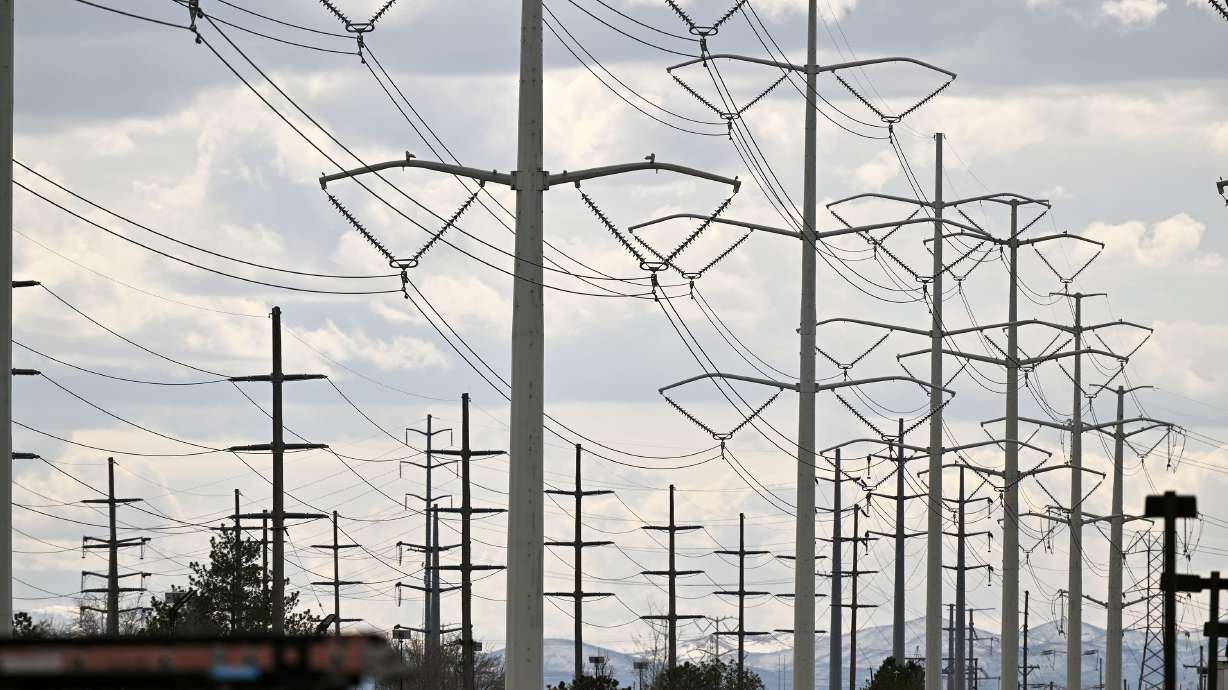Estimated read time: 3-4 minutes
This archived news story is available only for your personal, non-commercial use. Information in the story may be outdated or superseded by additional information. Reading or replaying the story in its archived form does not constitute a republication of the story.
- Nearly 25% of Utah residents struggle with utility bill payments, census data reveals.
- Inflation and stagnant incomes have forced some Utahns to cut back on essentials like electricity.
- Utility companies and social services offer assistance, but demand for help is rising.
SALT LAKE CITY — Beginning the week of Oct. 1, the start of the federal fiscal year, the U.S. Census Bureau contacts thousands of Americans for a 20-minute interview regarding how they are doing financially. What the investigators discover is a snapshot of how the nation and individual states are faring.
Analyzing the data from Oct. 1 to Dec. 1 indicates the same picture seen before, but in a different frame: People are struggling to get by, but the struggles are not only caused by housing bills and food prices.
Electricity bills have placed a burden on Americans' shoulders, including for 25% of Utahns who say they struggle to pay their electric bill in full each month, the census report notes.
"We've all talked about this before, but inflation is playing a huge role in the financial lives of everyone. And prices are not going down," said Matt Schulz, a chief credit analyst for Lending Tree, a personal loan company. "Pre-pandemic, there was already a tight margin for error with people's budgets, so when prices increased after the pandemic, people were forced to make tough decisions. One of them had to do with monthly bills, like electricity."
The rise in housing prices — without a rise in income — forced homeowners to cut back somewhere, usually food purchases and extracurricular entertainment like concerts and vacations, Schulz said.
Staff at personal and short-term loan companies, like LendingTree and Jora Credit have noted anecdotally they seen an increase in people needing funds in order to pay bills, as well, reports staff at Lending Tree and Jora Credit.
Eventually, nearly 1 in 4 Utahns opted to either decrease use or shut off their electricity at certain times of day — not great for refrigerators or freezers — or lower their housing temperatures to unhealthy levels, as 23.3% of the nearly 24% of Utahns struggling to pay for utilities have done, according to the census report.
The confusing piece to this can be that in Utah, the Department of Workforce Services reports the state's unemployment rate as 3.5%, below the national rate of 4.2%.
So how can nearly 24% of Utahns struggle to pay their electric bill if the state unemployment rate, often an indicator of how well the economy is doing, is so low?
Easily, according to Schulz.
"The unemployment rate is usually a sign of how the job market and the economy are doing. And they are doing well in Utah," he said. "But inflation has to do with rising prices. So, most people can be employed, but still struggle to pay their bills. And if they have decided to cut how much of their electric bill they pay, that means they were desperate."
Rocky Mountain Power, which serves Utah, Wyoming and Idaho, encourages people not to drop their temperatures to low levels or attempt to save money on bills by using candles or propane lamps. They and many social service agencies can help with utility payment assistance when needed.
The Salvation Army Salt Lake City, Community Action Program, the Office of Consumer Services and other social service and government agencies have a history of assisting Utahns with utility payments, which often includes bill payment, payment deferment or a bill payment plan to lessen the burden.
Every agency has seen an increase in demand for applications for the program, although to what extent, agency leaders say they are unsure at this time. Some will have those numbers once the winter is over.
What is certain is that Utahns definitely struggled with paying utility bills this year — as close to half the residents of other states, such as Mississippi and Alabama, also did, according to the survey.
Local agencies are prepared to see an increased demand each year, but some also know that not everyone who is in need of help is applying for it.
"We want people to know that if you cannot pay your bills, we are willing to work with you," said Jona Whitesides from Rocky Mountain Power. "Maybe people feel embarrassment, but you can call and we can come up with a game plan. We can help find a solution to this."
Utility Assistance Programs
- Office of Consumer Services: ocs.utah.gov/assistance-programs
- Department of Workforce Services: jobs.utah.gov/housing/scso/seal/heat
- Utah Community Action: utahca.org/heat
- Rocky Mountain Power: rockymountainpower.net/my-account/payments/bill-payment-assistance
- Salvation Army Salt Lake City: saltlakecity.salvationarmy.org/salt_lake_city_corps/overcome-poverty









